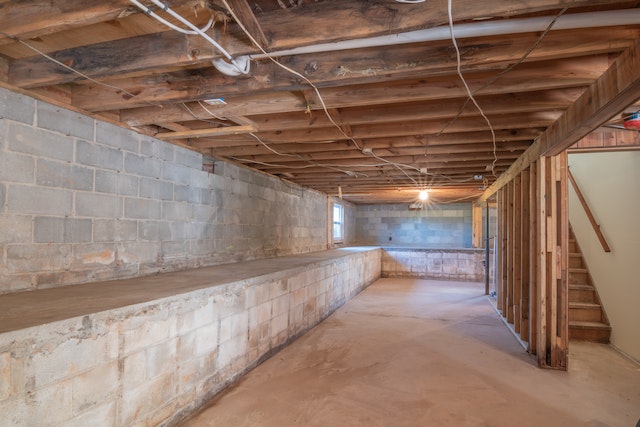One of the main reasons why you will rarely hear about converting the basement to additional living space is because basements are, by their very nature, prone to flooding.
In fact, because basements are so susceptible to flooding, what you are working to avoid is damage or a disaster caused by that flooding. You may not be able to prevent floods on that lowest level of your home, but you can avoid letting a flood turn into a royal disaster. Here’s how.
1. Clean Any Standing Water Immediately
Standing water on the basement floor can quickly lead to some of the worst basement flooding disasters you want to avoid. Not only will all that standing water be fertile for growing a number of pathogens, but it can lure rats into your basement as well. Water rodents of any kind are a serious health hazard and that is the disaster, not necessarily the water that’s collected there. Even so, it’s in your best interest to have it pumped out and dried up professionally as soon as you notice it.
2. Avoid Clogged Drains
Clogged drains are, without a doubt, one of the most common reasons for a flooded basement. If you’ve ever suffered through major flooding on your basement floor you will understand why it is vital that you never pour grease or fats of any kind down the drains. Also, as a preventative measure you may want to use a professional drain cleaning product every few months. Besides fats and grease, hair can also quickly clog your drains with the built-up pressure causing one or more pipes to burst.
3. Use Water Sparingly During Rainy Months
Sometimes the sewers and outdoor drains get so backed up because of rainy weather. If at all possible, use water sparingly in rainy months and also in early spring as snow and ice begin to melt. With such an influx of water, leaves and other debris can be forced into your sewers. This can back up water quite quickly and if you aren’t careful, it can back up all the way back into your basement. Until you can get those sewer lines cleaned, use water as sparingly as possible.
4. Use Caution When Storing Anything on the Basement Floor
While you should try never to store anything on the basement floor, a few waterproof and tightly sealed containers should be okay. As mentioned above, it isn’t always the flooded basement that is the disaster but rather all the damage that water can do. If you’ve left any cardboard boxes laying around with anything of value in them, that is going to be the disaster
As the old saying goes, “An ounce of prevention is worth a pound of cure.” Therefore, the best way to avoid disasters from flooded basements is to prevent flooding in the first place. Although this isn’t always possible, the good news is that you can have your basement drained and dried so as to avoid any further damage brought about by standing water.
